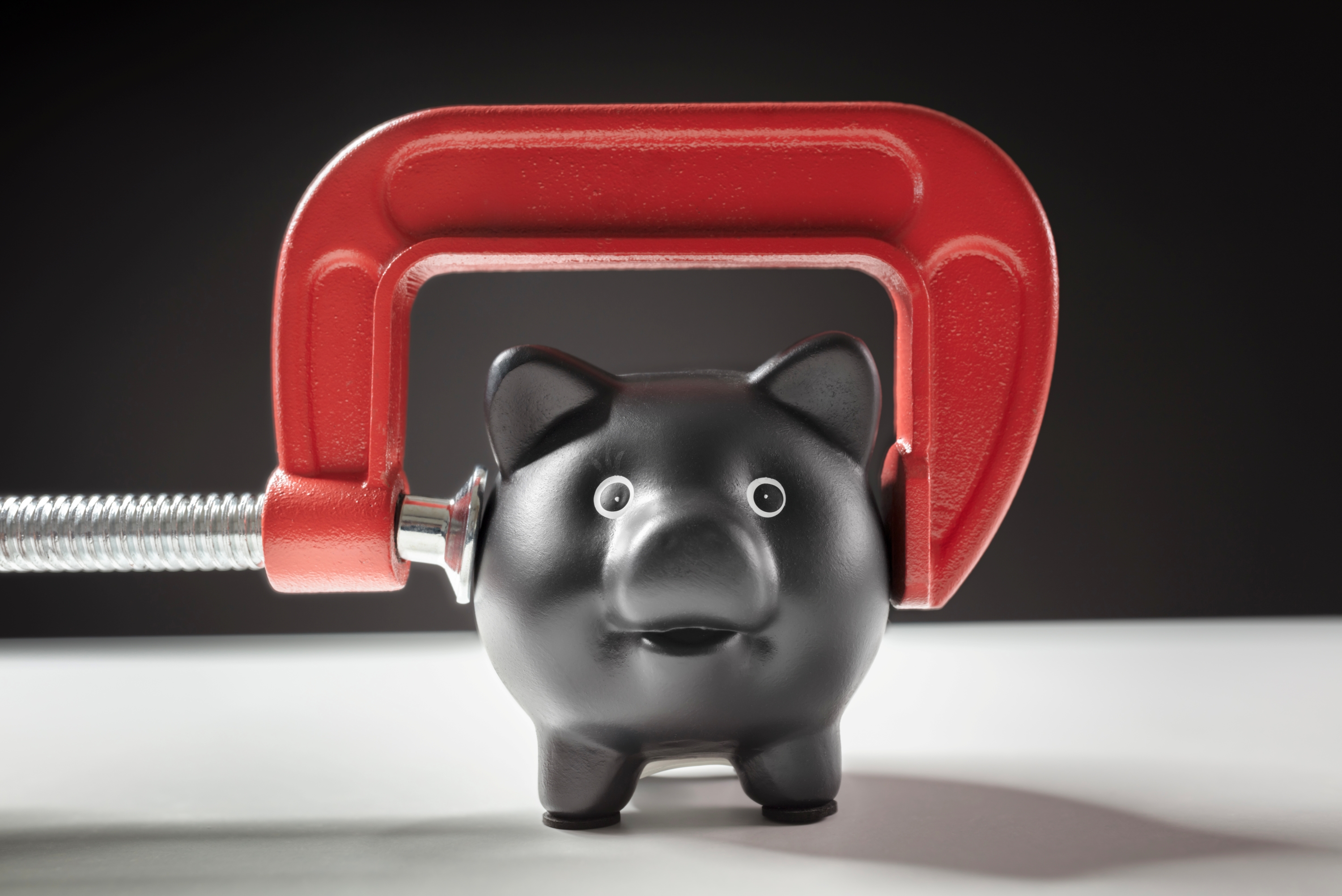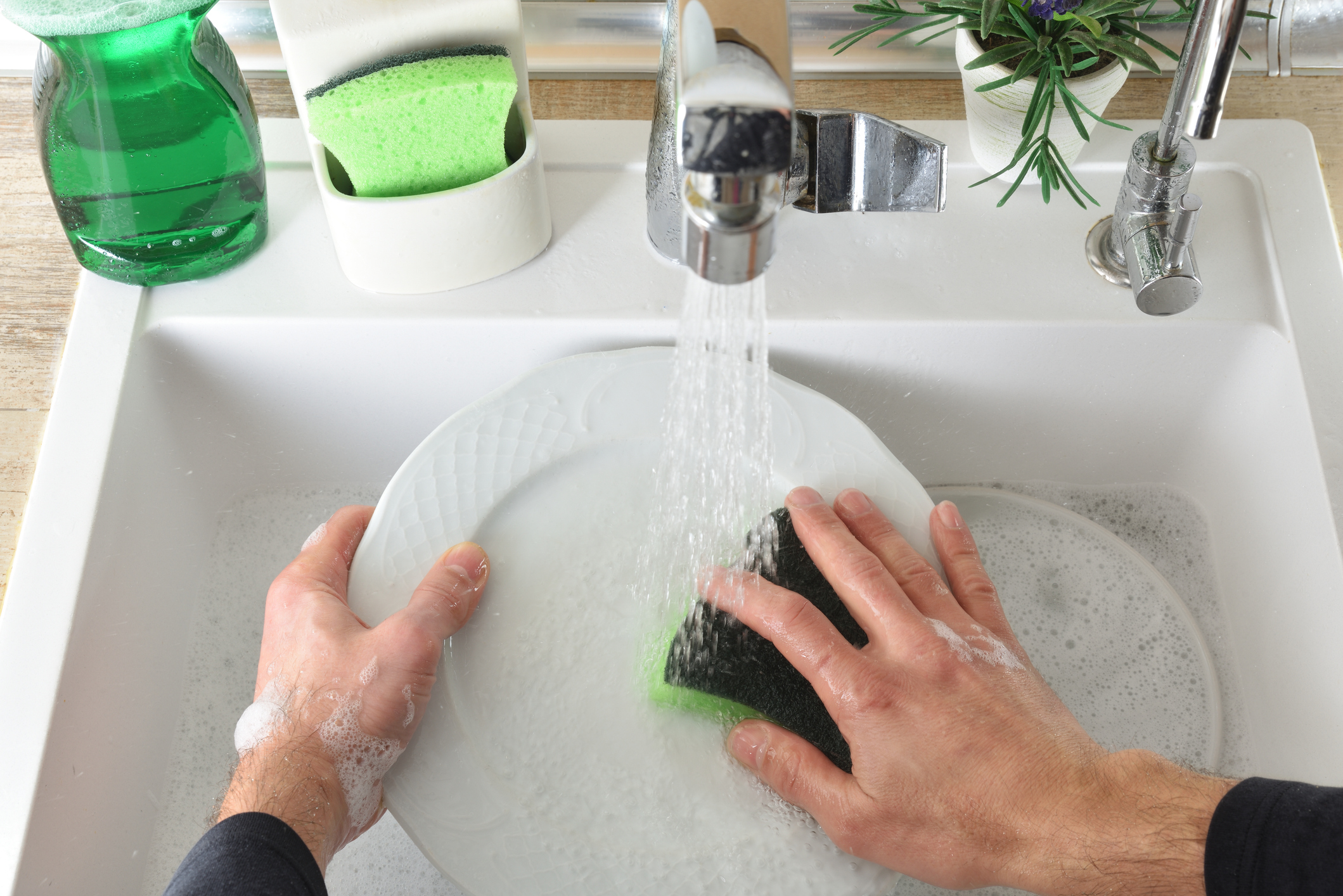7 Frugal Habits That Aren't Worth It (and What to Do Instead)
Avoiding waste is important, but some frugal habits are more trouble than they're worth.

Profit and prosper with the best of Kiplinger's advice on investing, taxes, retirement, personal finance and much more. Delivered daily. Enter your email in the box and click Sign Me Up.
You are now subscribed
Your newsletter sign-up was successful
Want to add more newsletters?

Delivered daily
Kiplinger Today
Profit and prosper with the best of Kiplinger's advice on investing, taxes, retirement, personal finance and much more delivered daily. Smart money moves start here.

Sent five days a week
Kiplinger A Step Ahead
Get practical help to make better financial decisions in your everyday life, from spending to savings on top deals.

Delivered daily
Kiplinger Closing Bell
Get today's biggest financial and investing headlines delivered to your inbox every day the U.S. stock market is open.

Sent twice a week
Kiplinger Adviser Intel
Financial pros across the country share best practices and fresh tactics to preserve and grow your wealth.

Delivered weekly
Kiplinger Tax Tips
Trim your federal and state tax bills with practical tax-planning and tax-cutting strategies.

Sent twice a week
Kiplinger Retirement Tips
Your twice-a-week guide to planning and enjoying a financially secure and richly rewarding retirement

Sent bimonthly.
Kiplinger Adviser Angle
Insights for advisers, wealth managers and other financial professionals.

Sent twice a week
Kiplinger Investing Weekly
Your twice-a-week roundup of promising stocks, funds, companies and industries you should consider, ones you should avoid, and why.

Sent weekly for six weeks
Kiplinger Invest for Retirement
Your step-by-step six-part series on how to invest for retirement, from devising a successful strategy to exactly which investments to choose.

After years of inflation driving up prices, many Americans are feeling the pinch. To cut your budget, you might be looking for ways to be more frugal.
In general, frugality is good. It's a way to be more intentional about what you buy and how you use it to avoid overspending when you can.
But in the pursuit of pinching every penny, it's easy to lose sight of the bigger picture. Sometimes, the effort or stress you're adding to your life aren't worth the few cents you're saving. Even worse, some frugal habits aren't saving you money at all.
From just $107.88 $24.99 for Kiplinger Personal Finance
Become a smarter, better informed investor. Subscribe from just $107.88 $24.99, plus get up to 4 Special Issues

Sign up for Kiplinger’s Free Newsletters
Profit and prosper with the best of expert advice on investing, taxes, retirement, personal finance and more - straight to your e-mail.
Profit and prosper with the best of expert advice - straight to your e-mail.
As you look for ways to trim waste from your budget, avoid falling into the trap of following frugal habits that aren't worth it.
1. Driving far out of your way to save a few cents on gas
Within a certain radius, driving a little out of your way to save on gas could make sense, but there's a point at which the gas used to get there outweighs any savings you're getting.
Let's say your car averages about 22 miles per gallon for city driving. If the cheaper gas station is 11 miles out of your way, you'll use half a gallon getting there and half a gallon getting back.
Meanwhile, a typical gas tank on a midsize car holds about 16 gallons. At the current average price of $3.07 per gallon, the prices at the further station would need to be more than 19 cents lower per gallon than the station closest to you just to break even on the gallon of gas you used to drive there and back.
What to do instead
There are lots of ways to get discounts on gas without having to hunt down the lowest-priced station. One of the best options is to get a Costco membership and time your fill-ups with grocery shopping trips.
Stack Social is offering a Gold Star Membership + $20 Digital Shop Card for the price of a $65 Gold Star membership. It is also offering an Executive Gold Star Membership + $40 Shop Card for the price of a $130 Executive Gold Star membership. Memberships auto-renew each year until you cancel.
If you don't live near a Costco, there are other memberships that let you save on gas. You can also get cash back credit cards that offer 3% or more every time you fuel up.
If you stack that cash back on top of a membership that includes discounted gas, you could save more than 15 cents per gallon without having to drive out of your way.
2. Driving to multiple stores in a single trip to find deals

Driving all over town to visit multiple grocery stores because blueberries are cheaper at one place, but the butter you like is cheaper at another is probably not worth the time and gas.
You can use similar math as above to calculate how much you spend on gas to see if the price difference between stores is worth the extra gas you're using to hit multiple locations.
Even without calculating the cost of gas, think about the value of your time. Is paying 20 cents less for blueberries worth, say, the 20 minutes of your time spent driving to a different store and waiting in line to pay for your slightly cheaper produce?
What to do instead
If you have multiple stores you like, do a rotation in which you visit one per shopping trip.
For example, say you have four stores that you normally visit when you go grocery shopping every week.
Instead of going to every store every week, go to one store this week and stock up on a month's supply of whatever it is that store does best. Next week, go to another store and do the same.
Rotate through your stores so you're only ever going to one store per week, but you always have enough of your favorite groceries to get you through until that particular store is back in your rotation.
Earning cash back on every grocery trip can help put a little of that money back in your pocket. See Kiplinger's top credit card picks for groceries, powered by Bankrate. Advertising disclosure.
3. Buying everything in bulk
Yes, the per-unit price is lower if you buy a year's supply of coffee compared with the smaller bags. But a few months into your year's supply of coffee, it's going to taste stale and bitter. Taste aside, there are some items that you shouldn't buy in bulk because they'll spoil or lose potency after a time.
If the item will expire before you can use it, you're not saving money by buying bulk. You're wasting it.
Bulk buying is great for nonperishable items such as toilet paper or paper towels. It's also a good option for the things your household consumes a lot of. If your family eats more than a dozen eggs per week, buy the big case of eggs at Costco.
What to do instead
Do some math to make sure you don't stock up beyond what you can use before an item expires.
Even for nonperishable items, be mindful of how much you stock up. Sure, you can pay less per roll by buying a year's supply of toilet paper. But do you have a place to store that much toilet paper where it won't be in your way?
4. Handwashing dishes rather than running the dishwasher

If the dishes in question aren't dishwasher safe, you'll need to handwash them. But if it can go in the dishwasher, it probably should. These machines are more water-efficient than many people give them credit for.
If you have a relatively modern dishwasher, it's probably using a little more than three gallons (PDF) of water per cycle. Some use as little as one gallon per cycle.
Meanwhile, the gallons used when handwashing depend on your technique. If you keep the faucet running, you're probably using about 15 gallons (PDF) every five minutes. If you fill the sink to soak your dirty dishes, that uses about five gallons. You'll use a few more gallons to rinse them.
With either handwashing method, you'll use more water than a modern dishwasher pretty quickly. Even if the dishwasher is only partially full, it's still probably more water-efficient to just run it rather than handwashing.
What to do instead
In terms of cutting your water bill, your landscaping is likely the biggest drain on your budget. Finding ways to make your garden more water-efficient will pay off far more than being stingy about your dishwasher usage.
Other simple habit changes such as shaving a few minutes off of your daily shower and turning the faucet off while brushing your teeth or washing your hands can also cut your water usage without significantly impacting quality of life.
5. DIY repairs that really should be done by a pro
I used to be guilty of this one. A couple of years ago, I got quotes to have my back door replaced. It was just a straight forward swap of the old door for a new door of the same size.
All the quotes were higher than I liked. I let YouTube convince me this was a perfectly reasonable DIY project even though I'd never so much as replaced a showerhead up to that point.
It was messy, tedious, harder than it looked and required buying a few power tools that I didn't have.
It also took the better part of a day when a pro could have been in and out in a couple of hours — and it still kind of creeks in a way that I should probably have someone come check out.
What to do instead
When comparing the cost of DIY to hiring a pro, factor in the added time and effort it will take you as an amateur.
Some people are very handy and could do a job like that just as well as the pros. I am not one of those people, and if you aren't either, the money you'll save isn't worth the stress you'll add to your life.
6. Keeping every jar, box or container you get

Yes, those glass pasta sauce jars feel too useful to toss out. Yes, they're great for storing leftovers. But at a certain point, you have to admit you don't need a cupboard piled high with hundreds of them.
This applies to all those random things that add clutter to your home because they just look too useful to throw away.
What to do instead
Save a few jars, and recycle the rest. Maybe consider rotating them out with new ones once in a while rather than continuously adding to your collection.
7. Depriving yourself of joy and comfort to save a couple of bucks
With a lot of frugal habits, the savings we're talking about are pennies or dollars. There are a few exceptions that lead to bigger savings.
If you're giving up your favorite shampoo to save a dollar every other month, that's only worth it if the replacement shampoo works for you. If you hate the scent or you don't like the way it dries out your hair, pay an extra dollar for the good stuff.
I meal prep because it means I don't have to cook every night. I hang dry most of my laundry because I don't mind doing it and it saves a bit on electricity. But once a week, I drive miles across town to buy single-origin, small batch roasted coffee from a local roaster.
I could probably buy a month of beans at Costco for what I pay for a weekly bag. But my fancy cup of joe each morning brings me joy. For someone else, hanging laundry might sound like torture, but they're just fine buying commercial grade coffee at a grocery store.
What to do instead
The balance between saving money and depriving yourself will be different for everyone. There are a lot of frugal habits that might be fine for some, but would make another person miserable.
Ultimately, you want to look for ways to be frugal in areas in which the cost-saving alternative doesn't significantly impact your quality of life. Then, use those savings to splurge in the areas where you'll appreciate the luxury.
Get more consumer tips and other personal finance insights straight to your inbox. Subscribe to our daily newsletter, A Step Ahead.
Related content
Profit and prosper with the best of Kiplinger's advice on investing, taxes, retirement, personal finance and much more. Delivered daily. Enter your email in the box and click Sign Me Up.

Rachael Green is a personal finance eCommerce writer specializing in insurance, travel, and credit cards. Before joining Kiplinger in 2025, she wrote blogs and whitepapers for financial advisors and reported on everything from the latest business news and investing trends to the best shopping deals. Her bylines have appeared in Benzinga, CBS News, Travel + Leisure, Bustle, and numerous other publications. A former digital nomad, Rachael lived in Lund, Vienna, and New York before settling down in Atlanta. She’s eager to share her tips for finding the best travel deals and navigating the logistics of managing money while living abroad. When she’s not researching the latest insurance trends or sharing the best credit card reward hacks, Rachael can be found traveling or working in her garden.
-
 Quiz: Do You Know How to Avoid the "Medigap Trap?"
Quiz: Do You Know How to Avoid the "Medigap Trap?"Quiz Test your basic knowledge of the "Medigap Trap" in our quick quiz.
-
 5 Top Tax-Efficient Mutual Funds for Smarter Investing
5 Top Tax-Efficient Mutual Funds for Smarter InvestingMutual funds are many things, but "tax-friendly" usually isn't one of them. These are the exceptions.
-
 AI Sparks Existential Crisis for Software Stocks
AI Sparks Existential Crisis for Software StocksThe Kiplinger Letter Fears that SaaS subscription software could be rendered obsolete by artificial intelligence make investors jittery.
-
 One of the Most Powerful Wealth-Building Moves a Woman Can Make: A Midcareer Pivot
One of the Most Powerful Wealth-Building Moves a Woman Can Make: A Midcareer PivotIf it feels like you can't sustain what you're doing for the next 20 years, it's time for an honest look at what's draining you and what energizes you.
-
 I'm a Wealth Adviser Obsessed With Mahjong: Here Are 8 Ways It Can Teach Us How to Manage Our Money
I'm a Wealth Adviser Obsessed With Mahjong: Here Are 8 Ways It Can Teach Us How to Manage Our MoneyThis increasingly popular Chinese game can teach us not only how to help manage our money but also how important it is to connect with other people.
-
 Looking for a Financial Book That Won't Put Your Young Adult to Sleep? This One Makes 'Cents'
Looking for a Financial Book That Won't Put Your Young Adult to Sleep? This One Makes 'Cents'"Wealth Your Way" by Cosmo DeStefano offers a highly accessible guide for young adults and their parents on building wealth through simple, consistent habits.
-
 My Spouse and I Are Saving Money for a Down Payment on a House. Which Savings Account is the Best Way to Reach Our Goal?
My Spouse and I Are Saving Money for a Down Payment on a House. Which Savings Account is the Best Way to Reach Our Goal?Learn how timing matters when it comes to choosing the right account.
-
 We're 78 and Want to Use Our 2026 RMD to Treat Our Kids and Grandkids to a Vacation. How Should We Approach This?
We're 78 and Want to Use Our 2026 RMD to Treat Our Kids and Grandkids to a Vacation. How Should We Approach This?An extended family vacation can be a fun and bonding experience if planned well. Here are tips from travel experts.
-
 Why Most Millionaires Don't Feel Wealthy — and What It Really Takes to Feel Financially Secure
Why Most Millionaires Don't Feel Wealthy — and What It Really Takes to Feel Financially SecureA growing share of Americans reach millionaire status yet still worry about money. Here's why wealth feels different today and how to build true financial confidence.
-
 You Could Be Overpaying for Internet. Here’s How to Choose the Right Type
You Could Be Overpaying for Internet. Here’s How to Choose the Right TypeFiber, cable, 5G wireless and satellite internet all offer different speeds, reliability and price points. Understanding the differences could help you lower your monthly bill or improve performance.
-
 My First $1 Million: Retired From Real Estate, 75, San Francisco
My First $1 Million: Retired From Real Estate, 75, San FranciscoEver wonder how someone who's made a million dollars or more did it? Kiplinger's My First $1 Million series uncovers the answers.

